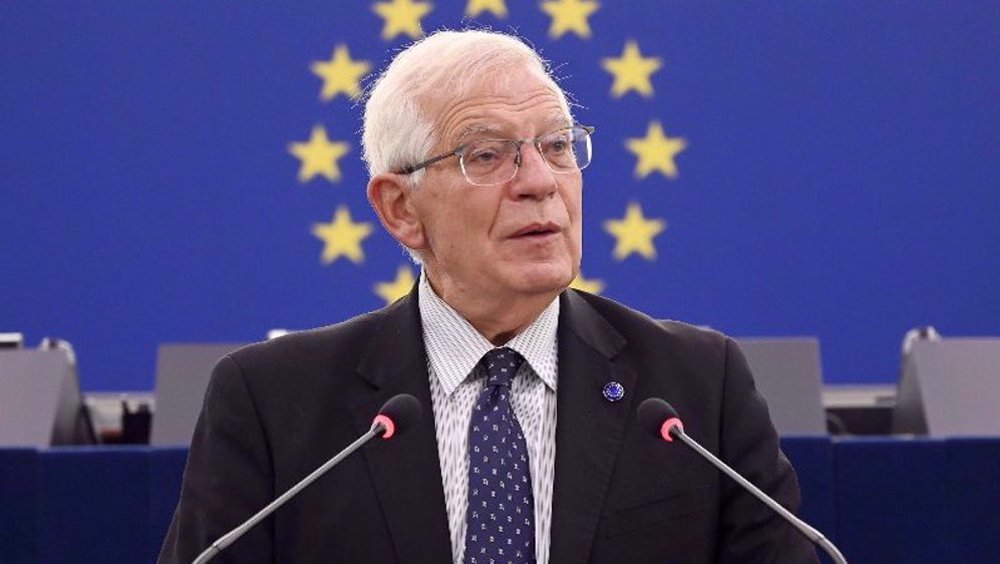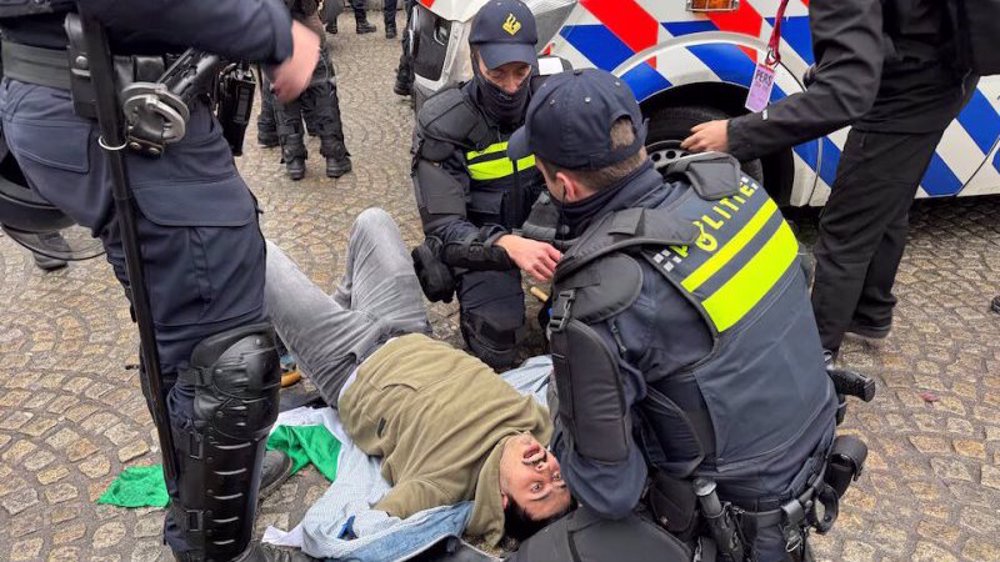Irish hold nationwide protests against water charges
Tens of thousands of people have taken to the streets across Ireland in protest at the introduction of water charges applied under Dublin’s bailout deal with its international creditors following the 2008 financial crisis.
The protest marches were held on Saturday in some 20 cities across Ireland, including the capital, Dublin, Cork, Limerick, Galway, Waterford and Letterkenny.
Some 30,000 demonstrators reportedly took part in the Dublin rally, with many chanting “No way, we won’t pay” and “the banks got bailed out, we got sold out” and carrying posters demanding that Prime Minister Enda Kenny resign.
Derek Byrne, an organizer of the demonstration in the capital, said people were not just protesting against the water charges, but also against austerity, the bank bailout and all the cuts imposed by the government.
“It’s time for this government to stand down. They no longer have a mandate from the people, it’s time for them to go,” Byrne added.
One protester identified as Lorraine said the protesters are tired of the policies adopted by the current government.
“They have tried to blacken protesters as they have nothing else on us. We are just normal people, everyday people, who are saying no more. We are in debt, we are losing our homes, people are taking their lives, and enough is enough. We won’t take it,” said Lorraine.
The Irish government decided to charge households for water as part of the bailout announced in 2010 by the so-called troika on international creditors - the European Union, the European Central Bank (ECB) and the International Monetary Fund (IMF).
However, opposition against the cost has grown as the first bills are to be sent out to customers in April.
Campaigners are calling for the decision on water charges to be scrapped, a demand which is backed by left-wing opposition parties as well as trade unions.
The new charges would cost the average household between 200 and 400 euros per year. Under the old system, local authorities were responsible for the water services, which were paid for through general taxation.
Ireland exited its bailout program in 2013, three years after seeking financial aid. The creditors supplied an 85 billion euro bailout loan to Ireland in 2010, coming mostly from external loans and guarantees, which includes 17.5 billion euro taken mostly from Ireland’s public pension fund.
Europe plunged into financial crisis in early 2008. The threat of insolvency has plagued heavily debt-ridden countries such as Greece, Portugal, Italy, Ireland and Spain.
CAH/MKA/HMV
Related Stories
Irish protesters raps water charges plan Wed Dec 10, 2014
Irish say will not accept water charges Sun Nov 2, 2014
Ireland exits intl. bailout program Sun Dec 15, 2013
US House passes bill targeting charities and pro-Palestine groups
Hezbollah attacks Israeli forces after Lebanese homes blown up
World leaders, states hail ICC arrest warrants for Netanyahu, Gallant
MP: US accountable for possible Israeli 'foolishness' to attack Iraq
VIDEO | Israeli policies strangle Palestinian agriculture, economy
Iran's president offers condolences to Pakistan over terrorist attack
Canada’s Yukon town council at standstill over refusing oath to King Charles
Yemen's Houthi calls for jihad to protect Palestine against Israel










 This makes it easy to access the Press TV website
This makes it easy to access the Press TV website